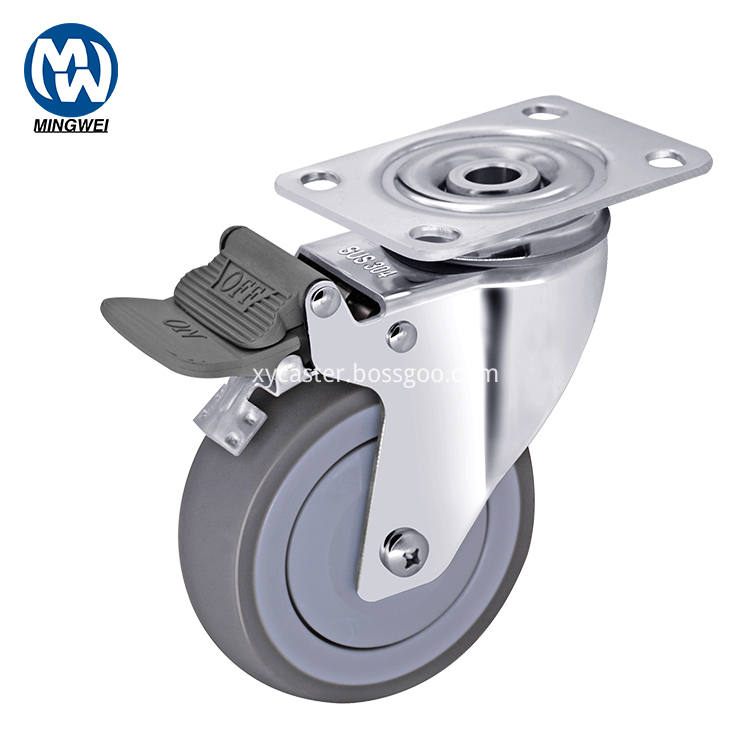Abstract Recently, some people from the National Development and Reform Commission of China told the media that more than 1,000 Chinese and foreign auto companies are now accepting the anti-monopoly investigation of the National Development and Reform Commission. On August 6, Li Pumin, secretary-general of the National Development and Reform Commission, announced that he was suspected of "monopoly".
Recently, a source from the National Development and Reform Commission of China told the media that more than 1,000 Chinese and foreign auto companies are now accepting anti-monopoly investigations by the National Development and Reform Commission. On August 6, Li Pumin, secretary-general of the National Development and Reform Commission, announced that 12 Japanese parts and components companies suspected of “monopoly†were being listed. With the continuous deepening of the Chinese government's anti-monopoly investigation against the automobile industry, the “Chinese partners†of GAC Toyota, Guangqi Honda and Dongfeng Nissan have all expressed their positive attitudes. Guangqi Honda, GAC Toyota and Dongfeng Nissan have collectively claimed that they are willing to actively cooperate with anti-monopoly investigations. However, the distributors of these Japanese joint venture brands have made a very different reaction from the manufacturers, and they are silent on this matter.
The author tries to sort out the intricate interest chain of Japanese brands from the perspective of monopoly.
Japanese parts price reduction
On August 8, Guangqi Honda Automobile Co., Ltd. issued an official statement, which was called “Responding to the “Following†of the NDRC's anti-monopoly on the company. The price of some spare parts will be lowered from September 1. According to media reports, the price reduction of spare parts involved nearly 30,000 varieties, accounting for more than 70% of the total, and the price reduction ranged from 3% to 30%.
Another source said that GAC Toyota announced that it will reduce the price of some parts and components from August 18. In addition, Dongfeng Nissan responded to the "Anti-Monopoly Law" and other laws and regulations, will actively discuss and develop relevant areas of improvement programs, and provide better products and services with partners and distributors.
Guangqi Honda, GAC Toyota and Dongfeng Nissan as Japanese joint venture brands took the lead in responding after the anti-monopoly investigation touched the Japanese brand. Their "positive response" was only on August 6th, the National Development and Reform Commission held a press conference to "accelerate the development of productive service industry and promote the adjustment and upgrading of industrial structure", revealing that 12 Japanese companies were suspected of auto parts monopoly news broke out. After the second day.
At the same time, the author found that GAC Toyota, Guangqi Honda and Dongfeng Nissan's China headquarters have not issued any statements so far.
According to the 2013 Global Top 100 Auto Parts Suppliers list released by Automotive News, the number of Japanese parts companies is up to 29. Beyond the United States and Germany, it has become the largest number of parts companies in the list. However, in the list of the top 100, only one CITIC Daika Co., Ltd. in China was on the list.
In fact, as the above data shows, the global automotive industry has considerable dependence on the supply of Japanese auto parts. Chinese auto companies, especially Japanese joint ventures, are more dependent on Japanese parts suppliers.
According to statistics from China Research Institute, in 2013, China’s imports of auto parts from Japan amounted to US$9.58 billion, accounting for 27% of total imports. Among them, core spare parts, such as gearboxes, clutches, etc., accounted for 45% of imports, and brakes accounted for 33%.
This is a direct incentive for Japanese component companies to be suspected of operating price monopolies in China. The collective positive response of the Japanese joint ventures, to a certain extent, also proves that Japanese spare parts companies are closely related to them.
Suspected horizontal monopoly
China Insurance Industry Association and China Automobile Maintenance Association first disclosed in April this year, the "complete vehicle parts zero ratio" report pointed out that among the 18 common models, 10 models of vehicle parts have a zero ratio of more than 400%, of which Mercedes-Benz C The level of the W204 model is as high as 1273%, while the BMW [microblogging] and Audi models also have a zero ratio of more than 400%.
GAC Toyota has 4 seats in these 10 models, namely Lexus ES, Camry, Corolla and Yaris, of which Yaris's zero ratio is 720.28%.
The red line of the zero ratio of the international market is 300%. According to the normal logic, even if the Toyota Yaris's zero ratio is the highest among the four models, the zero ratio factor of the Mercedes-Benz C-class W204 is still “small and sorrowfulâ€.
However, on August 6, the National Development and Reform Commission said that it has completed the investigation of the auto parts and bearing price monopoly of 12 Japanese companies. Guangqi Honda, GAC Toyota and Dongfeng Nissan, for the anti-monopoly investigation of the National Development and Reform Commission, said that they have a positive attitude and seem to have a slightly "difficult".
In contrast, Mercedes-Benz is much more calm than the Japanese car companies that are represented by GAC Toyota. Just before the NDRC entered the Mercedes-Benz Shanghai office and conducted investigations and interviews with executives, the price was reduced by 15% with spare parts as a response to further anti-monopoly investigations.
In fact, from the perspective of the models, Yaris and Camry are the two main models of Guangfeng, and the zero ratio factor is higher than 500%. Once the anti-monopoly hammer falls to Japanese automakers, GAC Toyota will be implicated. In addition, the “zero ratio†coefficient of Dongfeng Nissan Tiida and Tianzhu is also high.
In this way, the "positive attitude" of Japanese companies to the NDRC's anti-monopoly investigation can be understood.
It is reported that the NDRC's anti-monopoly investigation is not limited to the whole vehicle price, but also targets the monopoly of parts supply channels in the after-sales market, as well as the limited-price regional sales of the automakers and 4S stores. It wants to eliminate “horizontal restrictions, vertical restrictions and abuse of market dominanceâ€. Status and other suspected monopolistic behaviors."
The "horizontal monopoly" is precisely the main problem faced by Japanese companies. This is more extensive than the “vertical monopoly†faced by Chrysler and Audi.
The 12 Japanese companies involved include: Tokai Ricoh, Bridgestone, Panasonic, Autoliv, TRW German Holdings, Nippon Seiki, GS Electech, Furukawa Electric, Yazaki Group, Denso Group, Diamond Motor and Vine Warehouse company; the related parts and components include heater control panel, turn signal switch, wiper, electric lock, instrument panel instrument, airbag, steering wheel and seat belt. In addition to the car's core power system, this includes almost a few categories of other parts.
The industry believes that this "horizontal monopoly" is usually in the bidding process, through a number of enterprises "collusion", one company reported low prices, other companies reported high prices, taking turns winning the bid. Japanese companies are usually more "carrying groups". This way seems to have become a "regulation" for Japanese companies.
Cui Dongshu, a well-known commentator in the automotive industry, believes that Japanese parts and automakers are closely related, and that “joining and retreating†is a means that Japanese companies have already used in the United States. For Japanese joint venture brands, such "sensitivity" may be due to their close relationship with Japanese parts companies.
Involving multiple interests
Chinese joint ventures often need to “share†three profits with foreign companies. That is, the joint venture's share fee, foreign brand technology transfer fee and core component purchase fee.
The current situation is that foreign companies will point out that Chinese joint ventures, whose core components are not up to standard, require joint ventures to purchase imported "original" parts. This has led to a problem in that the core components installed on the joint venture brand cars are basically from overseas suppliers.
Cao He, chief industry analyst of National Securities, pointed out that the monopoly of the automotive industry usually occurs in the circulation field and production field. In the field of vehicle production, the country has a share ratio limit, but there is no share ratio limit in the parts and components field. Many are wholly foreign-owned, or the stock ratio is very high, and the monopoly in the production field is not selective. The anti-monopoly investigation conducted by the National Development and Reform Commission for 12 Japanese parts companies, although focusing on the circulation field, cannot be ignored. The relationship between Japanese parts companies and vehicle manufacturers has always been very close.
A dealer who asked not to be named told reporters that the special relationship between Japanese parts companies and vehicle companies stems from their long-term mutual resistance to share risks. This is different from the US parts and components companies, which usually rely on the form of open bidding to achieve the supply of parts for OEMs.
The author has found that among the 12 Japanese parts and components companies that have received the anti-monopoly investigation of the NDRC, Matsushita and Toyota Motor Corporation have 20% and 80% of the shares in Panasonic EVENERGY. This company is a hybrid battery company that they jointly funded. Another Donghai Ricoh Automotive Parts Co., Ltd. in Tianjin produces accessories for Tianjin FAW Toyota, such as automotive combination switches, central control panel assemblies, and automatic window switches.
It is a joint venture established by Japan's auto parts manufacturer Tokai Rika Co., Ltd. and Japan Toyota Tsusho in China. Toyota Tsusho has a 5% stake in FAW Toyota. Autoliv provides side airbags for Toyota, Honda and Nissan. Yazaki Group mainly produces supporting parts for Dongfeng Honda, Dongfeng Nissan and Zhengzhou Nissan.
The close integration of such parts and automakers in the equity and component supply systems directly links multiple interests.
Chi Yifeng, vice president of the China Automobile Dealers Association, pointed out that the monopoly of the Chinese auto market is two points, one of which is the high price of repair parts for 4S stores. The main reason for this phenomenon is that manufacturers are too strong compared with spare parts suppliers and distributors. Manufacturers are not allowed to supply parts directly to dealers, and are required to send them to the manufacturer first, and then to the distributors.
Distributors downstream of these manufacturers must distribute a portion of their profits to the manufacturers in terms of parts replacement and maintenance. The way of profit distribution, because the "zero ratio" coefficient of the original parts has been determined, the amount of the specific profit is also fixed and mandatory.
Cui Dongshu believes that Japanese brands and their joint ventures maintain the interests of their dealers compared to European and American brands. According to an insider of the industry, if the Japanese automakers cut the price of spare parts or the after-sales maintenance price for the anti-monopoly law, the manufacturers will also give partial subsidies.
Mei Songlin, general manager of JD Power China, also said that the after-sales service is mainly to do more maintenance, the ratio of replacement parts is less, and the “zero ratio†is lowered, which has little impact on the profit of dealers.
However, when the author asked the person in charge of a distributor of Dongfeng Nissan to verify the evidence, she said that the subsidy for the manufacturer is not clear. When the author further asked about the impact of the “zero ratio†coefficient adjustment on his profit, she flashed her words and hurriedly hang up the phone. On this issue, the author continued to ask the person in charge of a dealer in Guangqi Honda, his attitude was also very cautious, and said that it is not convenient to disclose specific information.
5 Inch Stainless Steel Casters
China leading manufacturers and suppliers of Steel Casters,5 Inch Stainless Steel Casters, and we are specialize in 5 Inch Stainless Steel Caster Wheels,5 Inch Stainless Casters, etc.


Steel Casters,5 Inch Stainless Steel Casters,5 Inch Stainless Steel Caster Wheels,5 Inch Stainless Casters
Yangjiang Xingyang Industry & Trade Co.,Ltd. , https://www.xycaster.com